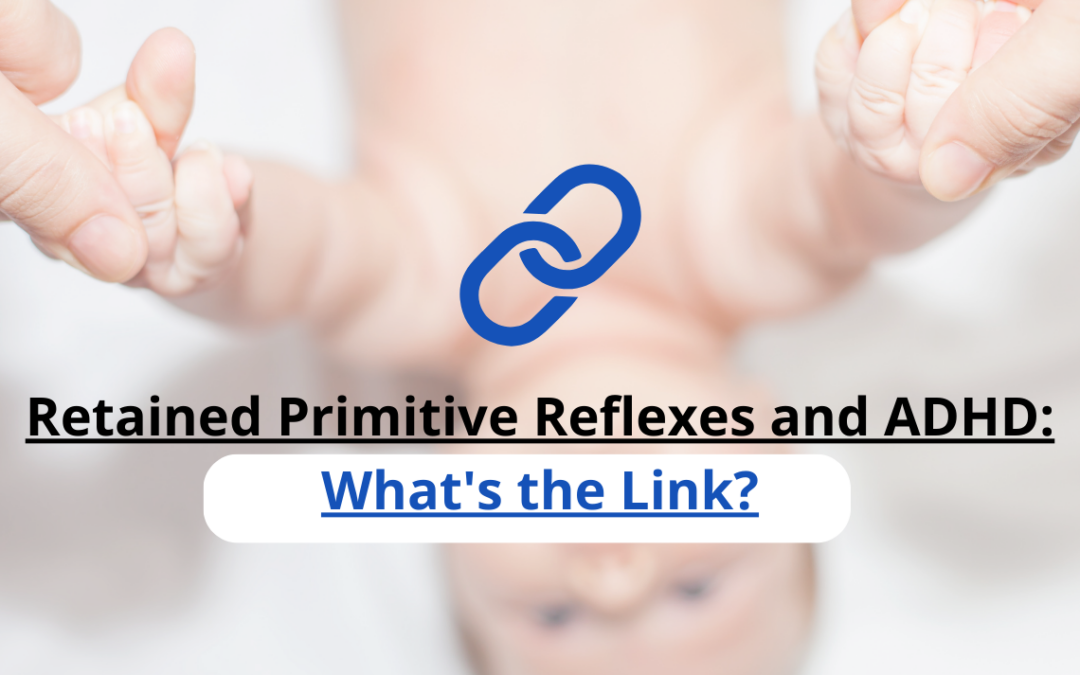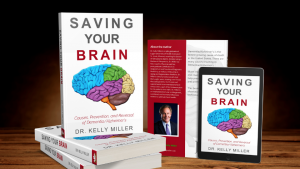The human brain is a remarkable organ, responsible for controlling our thoughts, emotions, and bodily functions. One crucial aspect of brain development that often goes unnoticed is the presence and integration of primitive reflexes. These reflexes, which are automatic, involuntary movements, are present from birth and serve as a foundation for the development of more complex motor and cognitive skills. However, in some cases, these primitive reflexes may persist beyond infancy, leading to various developmental challenges and potential impacts on brain health. In this article, we will explore the concept of retained primitive reflexes and their potential link to overall brain health.
Two reflexes, in particular, are thought to carry a link to ADHD or ADHD-like symptoms. The Moro reflex — sometimes referred to as the “startle reaction” — causes an infant to tightly grip his mother when he feels like he’s falling, and typically disappears within the first six months of life. A child who retains the Moro reflex will be hypersensitive to outside stimuli, startle easily, and may appear fidgety or restless — symptoms commonly seen in children with ADHD. – AdditudeMagazine.com
What Are Primitive Reflexes?
Primitive reflexes are automatic movements that are present in infants from birth and typically disappear as the child’s nervous system matures. These reflexes serve important functions during infancy, such as helping with feeding, crawling, and establishing sensory-motor connections. However, they are expected to integrate into higher-level motor skills as a child grows and develops.
Common Primitive Reflexes:
- Moro Reflex: This reflex is triggered by a sudden change in position or a loud noise, causing the infant to throw their arms and legs outwards, then quickly pull them back in. It helps the baby cling to their caregiver when startled.
- Rooting Reflex: When a baby’s cheek is touched, they will instinctively turn their head towards the stimulus, facilitating breastfeeding.
- Grasp Reflex: When an object is placed in an infant’s palm or fingers, they will grasp it automatically, a precursor to more refined hand coordination.
- Tonic Neck Reflex: As the infant’s head is turned to one side, the arm on that side extends, while the opposite arm bends at the elbow. This reflex aids in the development of reaching and visual tracking skills.
When Primitive Reflexes Persist
In typical development, these primitive reflexes naturally integrate into more complex voluntary movements and are no longer active by the time a child reaches a certain age. However, in some cases, these reflexes may persist beyond infancy and become retained primitive reflexes. This retention can have several consequences for brain health and development.
The Link Between Retained Primitive Reflexes and Brain Health
- Sensory Processing Challenges: When primitive reflexes persist, they can interfere with sensory processing, making it difficult for individuals to filter and interpret sensory information from their environment. This can lead to sensory sensitivities and difficulties with focus and concentration.
- Motor Coordination Issues: Retained primitive reflexes can affect motor coordination and fine motor skills. Individuals may struggle with tasks that require precise movements, such as writing, tying shoelaces, or buttoning clothing.
- Emotional Regulation: There is evidence to suggest that the persistence of certain primitive reflexes may impact emotional regulation. Some individuals with retained reflexes may experience heightened emotional responses or difficulties in managing stress and anxiety.
- Learning Challenges: Retained primitive reflexes can be linked to learning challenges, including difficulties with reading, writing, and math. These challenges may result from disrupted neural pathways associated with reflex integration.
- Balance and Posture: Reflexes play a role in establishing a stable foundation for balance and posture. When these reflexes persist, individuals may experience issues with balance, coordination, and posture.
Treatment and Intervention
The good news is that retained primitive reflexes can often be addressed through targeted therapeutic interventions. Neurodevelopmental therapy and brain training can help individuals integrate these reflexes and improve their overall brain health and functioning. At Saving Your Brain, we specialize in understanding the importance of primitive reflexes and how to correct retained primitive reflexes that may be the cause of ADHD symptoms.
The presence of retained primitive reflexes beyond infancy can have significant implications for brain health and development. While these reflexes serve essential functions during infancy, their persistence can lead to challenges in sensory processing, motor coordination, emotional regulation, and learning. Recognizing and addressing retained primitive reflexes through appropriate therapeutic interventions can play a crucial role in optimizing brain health and overall well-being. If you or someone you know experiences difficulties in any of these areas, consult with our brain specialist at Saving Your Brain who specializes in primitive reflex integration to provide valuable insights and support for improving brain health. Contact us at info@savingyourbrain.com.
Research Studies
1 Konicarova, Jana, and Petr Bob. “Retained Primitive Reflexes and ADHD in Children.” Activitas Nervosa Superior, vol. 54, no. 3-4, 2012, pp. 135–138., doi:10.1007/bf03379591.
2 Bob, Petr, et al. “Persisting Primitive Reflexes in Medication-Naive Girls with Attention-Deficit and Hyperactivity Disorder.” Neuropsychiatric Disease and Treatment, 2013, p. 1457., doi:10.2147/ndt.s49343.
3 Taylor, Myra, et al. “Primitive Reflexes and Attention-Deficit/Hyperactivity Disorder: Developmental Origins of Classroom Dysfunction.” International Journal of Special Education, vol. 19, no. 1, 2004, pp. 23–37.
4 Konicarova, Jana, and Petr Bob. “Retained Primitive Reflexes and ADHD in Children.”Activitas Nervosa Superior, vol. 54, no. 3-4, 2012, pp. 135–138., doi:10.1007/bf03379591.
5 Bob, Petr, et al. “Persisting Primitive Reflexes in Medication-Naive Girls with Attention-Deficit and Hyperactivity Disorder.” Neuropsychiatric Disease and Treatment, 2013, p. 1457., doi:10.2147/ndt.s49343.


